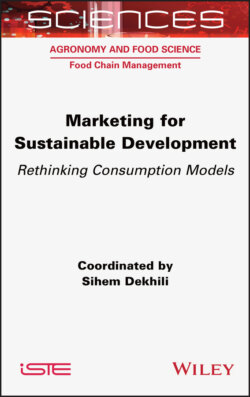Читать книгу Marketing for Sustainable Development - Группа авторов - Страница 20
1.3.2. Towards reestablishing a relationship of trust with the consumer
ОглавлениеIn underestimating the interest and concerns of consumers, and society more generally, in terms of preservation of health, respect for the environment and the struggle for equality, companies have long allowed themselves to adopt dominant positions towards consumers. This is why the relationship with business is perceived, by the three communities studied, as a relationship always defined by power, where the citizen-consumers are attempting to destroy the “totalitarianism” of the market system (Baudrillard 1970) and its powers of domination (Murray and Ozanne 2009), as well as methods that are viewed as “perverse” (Penaloza and Price 1993). The result of the hegemony of the company over consumers is that the company has long dealt with features characterized by their dissipation and their inertia, allowing it to exercise its influence over them. On the other hand, what has changed is that, through consumers grouping together in collectives, communities or associations, they have been able to recalibrate the power relationship, first initiating and then imposing alternative solutions to the traditional market to counter this hegemony. This being the case, the community members confirm that there should be freedom from this dependence by inventing other forms of consuming that fall outside the scope of the traditional market. This view translates into a trend towards consumer empowerment, by imparting a world view that is more conscious of health, more respectful of the environment and more engaged in combating waste. The following statement, issued by the “Le changement par la consommation” community, illustrates the anti-waste idea by promoting self-consumption in households: “Heyyy... I went over to homemade a while ago, so satisfying to create your own products (treatments, make up, household products, candy...) A great site for that: http://aroma-zone.com/aroma/accueil_fra.asp with everything, loads of instructions...” (www.facebook.com/le-changement-par-la-consommation-21826348482205/).
As a result, the domination approach, questioned at the individual and group levels by consumers, is challenged by a collaborative and socially responsible approach, where companies and citizens cooperate on a shared project, founded around basic values that must be respected. This project, balanced between human, environmental and economic components, would be the basis for the development of suitable provisions and measures to be implemented to the benefit of the different stakeholders. This possibility for cooperation between companies and consumers could be a credible alternative to a conventional marketing approach that is not considered socially responsible. As well as its inclination to create a new, fair and balanced relationship between the stakeholders, this approach would constitute a means for the potential reconciliation of companies with the protest movements that target them, e.g. the anti-consumers, protesting citizens, counter-cultural communities5 and communities of socially engaged individuals, with a view to encouraging business to take on a new idea of the world.
More broadly, for the online communities studied, this concerns the reconsideration of the field of action and the use of marketing, which should not be limited to sales but should take into account the impact of its choices on health, resources and the environment. This means a shift in the center of gravity of power, from the sole interest of the company to an integration of the collective interest. To that end, research highlights that brands will regain the trust of consumers when they show their ability to assume civic responsibilities (Dubuisson-Quellier 2009) alongside their role as an economic actor. Consumers and civil society will make their presence felt as stakeholders in considerations, positions and economic and social choices, as basic elements of an alternative and inclusive vision of the market.
